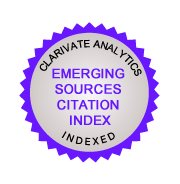A Circular Causation Model of the Oil and Gas Sector Relative to the Nonoil Sector in the Sultanate of Oman
Keywords:
Economic development, development planning, sectoral planning, Oman development policiesAbstract
The goal of Omanization as a comprehensive focus of the productive and social transformation of the Omani economy with the retention of her domestic output and labour component in total national economic activity is studied by using the methodology of circular feedback between some critical macroeconomic variables that relate to oil and non-oil sectoral development. The existing scenario points out that the structural shape of inter-sectoral allocation of resources and their socio-economic results is based on marginal rates of substitutions. Contrarily, the development structure based on inter-sectoral and inter-variable causality leads to the suggestion of the complementary (participatory) development outlook. The emergent model of circular causation is used to study both cases; the ‘as is’ estimation case and the ‘as it ought to be’ simulation case in view of eff ective Omanization taken up in its broad defi nition of socio-economic sustainability. The simulation results that give rise to fresh directions on socio-economic structures and policy-making are further studied by the method of Spatial Domain Analysis of the GIS method. Keywords: Economic development, development planning, sectoral planning, Oman development policies.Additional Files
Published
30-12-2014
How to Cite
Choudhury, M. A., Al-Muharrami, S., & Ahmed, M. S. (2014). A Circular Causation Model of the Oil and Gas Sector Relative to the Nonoil Sector in the Sultanate of Oman. International Journal of Management Studies, 21(2), 21–48. Retrieved from https://e-journal.uum.edu.my/index.php/ijms/article/view/10410
Issue
Section
Articles












